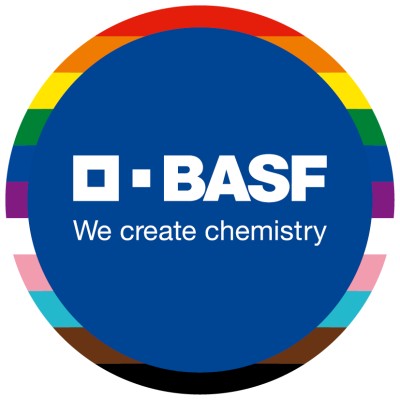QS Rank:

601

University of Hohenheim

Baden-Warttemberg
,Germany

Program Name
Master of Science in Bioeconomy
Overview
Pursuing a Master of Science in Bioeconomy at the University of Hohenheim equips students with essential skills and knowledge critical for addressing today’s multifaceted environmental challenges. This renowned program dives deep into Natural Resource Economics, focusing on sustainable practices that balance economic growth with ecological preservation. With an emphasis on bioeconomic principles, students explore the production and sustainable management of biological resources while also studying the implications of these practices on global markets and ecosystems.
The comprehensive curriculum is designed to provide students with a robust understanding of economic theories and their application in environmental contexts. Core courses include topics such as Environmental Economics, Bioenergy Systems, and Resource Management Strategies. Additionally, students will engage in elective courses tailored to their interests, such as Green Chemistry and Food Security. This multifaceted approach ensures that graduates are well-prepared to tackle pressing issues in bioeconomy and resource management.
At the heart of the program is the faculty, composed of leading experts in bioeconomy and natural resource management. Professors and researchers at the University of Hohenheim are not only academically accomplished but also actively involved in cutting-edge research, allowing students to benefit from their extensive expertise. The teaching methodology emphasizes a hands-on, interactive approach, encouraging students to participate actively in discussions, case studies, and practical projects. This immersive learning environment fosters critical thinking and innovation, essential qualities for future leaders in the field.
The University of Hohenheim boasts state-of-the-art research facilities that support extensive experimentation and exploration in bioeconomy. Students are given access to high-end laboratories and research centers, including those focused on sustainable agriculture and renewable energy. These resources provide students with opportunities to engage in substantial research projects, enhancing their understanding of the real-world applications of their academic studies. Moreover, collaboration with local and international research institutes opens doors for many joint projects, propelling students into the forefront of bioeconomic research.
In addition to academic excellence, the program emphasizes developing industry connections and providing internship opportunities. These connections are invaluable, allowing students to gain practical experience in diverse settings, from government agencies to non-profit organizations and private enterprises. The university's extensive network of industry partners facilitates internships that often lead to job placements upon graduation. The average base salary for graduates is approximately €45,000, reflecting the high demand for professionals with expertise in bioeconomy and natural resource management.
The career pathways available to graduates of this program are diverse and rewarding. Potential job roles range from Biotechnology Scientist, Sustainability Consultant, and Environmental Scientist to specialized roles such as Water Quality Engineer and Waste Management Specialist. The skills acquired during the program equip graduates to tackle a range of challenges in sectors including biotechnology, environmental consultancy, and policy-making. Alumni of the program have reported successful careers, showcasing the effectiveness of the curriculum and support provided by the university.
Many alumni have shared success stories highlighting the significant impact the Master of Science in Bioeconomy has had on their professional journeys. Graduates have taken on influential roles in both national and international organizations, contributing to major initiatives aimed at promoting sustainable practices and innovations in resource management. Testimonials often emphasize the supportive network of faculty and alumni, which continues to facilitate professional growth long after graduation.
Unique features of the program include its strong focus on interdisciplinary studies and real-world applications of bioeconomic principles. Students are encouraged to engage in collaborative projects across various fields, promoting a holistic understanding of the challenges and opportunities in sustainable resource management. The university also fosters a vibrant international community, making it an ideal choice for students from diverse backgrounds seeking to make a global impact in the field of bioeconomy.
Admission to the Master of Science in Bioeconomy program requires a bachelor's degree in a related field, along with a strong academic record. Candidates must also provide a resume and academic letters of recommendation. Proficiency in English is essential, demonstrated through standardized tests such as the TOEFL (minimum score of 90) or IELTS (minimum score of 6.5). The program is designed for individuals who wish to delve deeply into natural resource economics and its applications in addressing complex challenges in sustainability.
Why Study Bioeconomy at University of Hohenheim
- A globally recognized program with a strong reputation for academic excellence in bioeconomy.
- Access to renowned faculty members who are leaders in their fields, offering unparalleled mentorship.
- A robust curriculum combining theoretical knowledge with practical applications through hands-on projects and research.
- Extensive internship opportunities provide valuable experience and networking prospects in the industry.
- Strong alumni network assisting with career placement and professional development for graduates.
- An inclusive and diverse student body that enhances the learning experience by bringing various perspectives.

Duration
24 Months

Median Salary
$42,000
Ranking

#619
US World and News Report

#197
The World University Rankings

#601
QS World University Rankings
Class Profile

Class Size
25

Average Age
24

Average Work Experience
1 Years
Diversity
North America:
5%Africa:
1%Others:
2%Asia:
10%South America:
2%Germany:
60%Europe:
40%Career Outcomes

Median Earnings After Graduation
$42,000 / year
Prospective Job Roles
Biotechnology Scientist
Green Chemistry Researcher
Environmental Scientist
Water Quality Engineer
Waste Management Specialist
Food Scientist
Sustainability Consultant
Bioinformatician
Top recruiters









Eligibility Criteria
English Proficiency Tests
TOEFL
90

IELTS
6.5

Application Requirements
Here's everything you need to know to ensure a complete and competitive application—covering the key documents and criteria for a successful submission.

Transcript

Resume

Academic LOR
Application Deadlines
Fees and Funding

Tuition Fees
$3,000 / year
Funding Options
External Sources - Scholarships
Department Funding
Scholarships

The German Academic Exchange Service (DAAD)

The European Commission

The United Nations Environment Programme (UNEP)
FAQs
A student can complete Bioeconomy at University of Hohenheim with in 24.
The annual tuition fee to pursue Bioeconomy at University of Hohenheim is EUR 3000.
The Bioeconomy at University of Hohenheim has 4 semesters.
The submission of these scores mainly depends on the type of degree/ course selected at the University of Hohenheim. For example, the GMAT test is required to take admission to an abroad graduate management program, the LSAT is required during an abroad Law School admission process, and more. Therefore, check University of Hohenheim requirements before submitting a score.
Bioeconomy can help Indian/ international students gain: 1. Quality and Practical Education 2. Global Recognition 3. International Exposure 4. Amazing Job Opportunities 5. Experience of Lifetime and more
If a student fulfils all the eligibility criteria and admission requirements of University of Hohenheim, they can easily pursue Bioeconomy. The basic eligibility criteria include the following: 1. A GPA above 3 2. Well-written Statement of Purpose 3. An impressive Letter of Recommendation 4. A Work Experience Certificate (if required) 5. A Statement of Financial Proof 6. Academic Transcripts 7. Valid Visa, etc.
An MS degree at University of Hohenheim can usually be completed in 2 years. However, many universities offer a 1-year master’s specialisation as well. You can explore the official University of Hohenheim website to check the course/ degree duration.
One can apply for scholarships to pursue their international education at University of Hohenheim by: 1. Looking for country-specific scholarships by contacting the specific scholarship institutions. 2. Applying to or finding out if any subject-specific scholarships are available from the university website/ department.









Ready to elevate your study abroad journey?
Book a call with us now and take the first step towards your global future!














